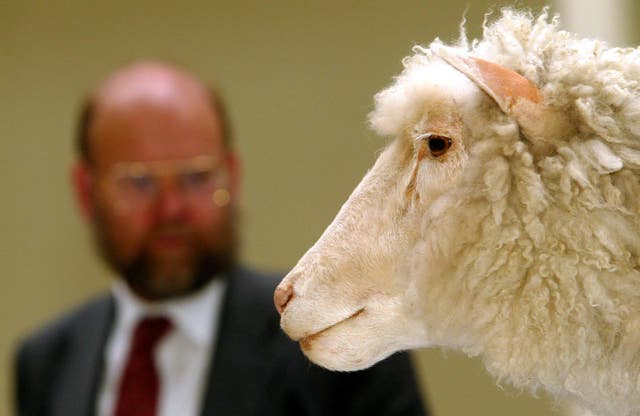Scientists find ‘no evidence of arthritis’ in Dolly the Sheep
Dolly was believed to have had early-onset osteoarthritis on the left knee.

Early fears that cloning may have given Dolly the Sheep arthritis were unfounded, say scientists.
Dolly, born at the Roslin Institute in Edinburgh in 1996, made history by being the first mammal to be cloned from an adult cell.
There have been claims the process led her to age prematurely and left her vulnerable to diseases linked to ageing.

One affliction she was thought to have suffered was early-onset osteoathritis (OA), resulting in her joints wearing out before their time.
But a new X-ray examination of Dolly’s skeleton found no evidence of abnormal oesteoarthritis.
The same was true of the bones of Dolly’s naturally conceived daughter Bonnie, and Megan and Morag, two other sheep clones created from cultured cells.

“As a result we conclude that the original concerns that cloning had caused early-onset OA in Dolly were unfounded.”
The only formal record of osteoarthritis in Dolly was a brief mention in a conference abstract, said the researchers whose findings are reported in the journal Scientific Reports.
It reported that Dolly had OA on the left knee.





